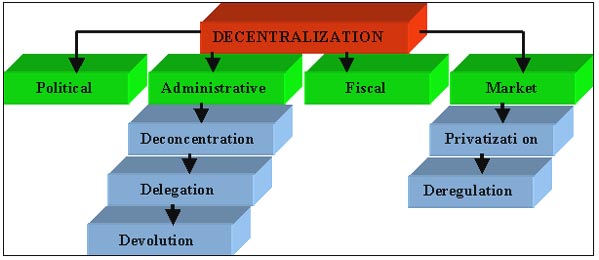A Closer Look at the Impact of Political Arrangements and Treaties
It is the invisible force that shapes the environment in which we live, work, and dream. In this blog post, we will explore the multifaceted importance of political stability

The Pillars of Progress: The Vital Importance of Political Stability
Political stability, often taken for granted in stable democracies, is a cornerstone of any thriving society. It is the invisible force that shapes the environment in which we live, work, and dream. In this blog post, we will explore the multifaceted importance of political stability and its far-reaching impacts on society, economy, and individual well-being.
The Essence of Political Stability
Political stability refers to the ability of a government to maintain continuity, order, and consistency in its policies and functions. It manifests as a state where political institutions, processes, and leadership changes occur peacefully, predictably, and without significant disruptions. While it might seem like a mere bureaucratic concern, the essence of political stability runs deep and affects every facet of society.
Economic Prosperity
One of the most immediate and tangible impacts of political stability is economic prosperity. When a country's political environment is stable, businesses can thrive without the fear of sudden policy changes, corruption, or unrest. Investors, both domestic and foreign, are more likely to invest in such environments, leading to job creation, infrastructure development, and overall economic growth.
For instance, consider the economic transformation of countries like Singapore and South Korea, which were once politically unstable but achieved rapid economic development once political stability was established. Businesses flourished, and living standards improved as a result.
Social Cohesion
Political stability fosters social cohesion by providing a sense of security and predictability for citizens. In societies plagued by political instability, people often live in constant fear, which can lead to social unrest, divisions, and even civil conflict. Conversely, in stable political environments, citizens can focus on personal and community development, leading to stronger social bonds and a shared sense of purpose.
Human Development
Human development indicators, such as education, healthcare, and overall well-being, are closely linked to political stability. A stable government can allocate resources efficiently to ensure access to quality education and healthcare for its citizens. In contrast, political instability can disrupt these essential services, depriving people of opportunities for personal growth and advancement.
Rule of Law and Justice
A stable political system usually upholds the rule of law and ensures a fair and impartial justice system. This, in turn, guarantees the protection of individual rights and freedoms. When political stability wanes, governments may resort to authoritarian measures, leading to human rights abuses and a decline in the quality of life for citizens.
International Relations
The importance of political stability extends beyond national borders. Countries with stable governments are more reliable partners in international relations. They can engage in diplomatic efforts, trade agreements, and collaborations that promote peace and global prosperity. Conversely, nations embroiled in political turmoil often become sources of regional instability, making cooperation and development more challenging.
Innovation and Progress
Stable political environments encourage innovation and progress. When individuals and businesses have confidence in the stability of the government, they are more likely to invest in research and development, leading to technological advancements and improved living standards. Stable governments can also enact forward-looking policies that address emerging challenges like climate change and healthcare, fostering long-term sustainability and progress.
Continuing on the same topic, let's delve deeper into the factors that contribute to political stability and explore some historical and contemporary examples to illustrate its significance.
Factors Contributing to Political Stability
Inclusive Governance: Political stability often thrives in societies with inclusive governance structures. When governments represent a wide range of voices and interests, it reduces the likelihood of marginalized groups resorting to violence or protest to have their voices heard.
Effective Institutions: Strong and effective institutions are crucial for political stability. These institutions include the judiciary, the police, and regulatory bodies. When they function impartially and efficiently, they instill confidence in the rule of law.
Responsive Leadership: Leaders who listen to their constituents, respond to their needs, and adapt to changing circumstances contribute significantly to stability. Such leaders can build consensus and bridge divides, preventing political crises.
Economic Development: Economic development often goes hand in hand with political stability. As a nation's economy grows, its citizens tend to enjoy higher living standards, reducing the impetus for unrest or rebellion.
Historical Examples
The European Union: The formation of the European Union (EU) after World War II stands as a remarkable example of how political stability can lead to prosperity and peace. By creating a framework for economic and political cooperation, European countries have largely avoided conflicts and enjoyed unparalleled economic growth.
Nelson Mandela and Post-Apartheid South Africa: Nelson Mandela's leadership and the peaceful transition to majority rule in South Africa are testaments to the power of stable political transitions. Despite a history of deep-seated racial tensions and violence, South Africa managed to establish a democratic government and avoid a civil war.
Contemporary Examples
Scandinavian Countries: The Nordic nations, including Sweden, Norway, Denmark, Finland, and Iceland, consistently rank among the most politically stable countries globally. Their strong social welfare systems, low levels of corruption, and inclusive governance have contributed to their enduring stability and high living standards.
Singapore: Singapore's transformation from a politically unstable, post-colonial state into a prosperous and politically stable nation is impressive. The city-state's strong leadership, commitment to the rule of law, and strategic economic policies have made it a global economic powerhouse.
Challenges to Political Stability
While political stability is essential, it is not always guaranteed. Several challenges can threaten it:
Corruption: Widespread corruption erodes trust in government institutions and can destabilize nations. It diverts resources away from public services, leading to discontent among citizens.
Inequality: Growing income and wealth inequality can create social divisions and resentment, potentially leading to instability.
External Interference: Foreign interventions or meddling in a nation's affairs can disrupt political stability, as seen in various conflicts worldwide.
Authoritarianism: Leaders who cling to power through authoritarian means often sow the seeds of instability. Suppression of dissent and political freedoms can lead to violent uprisings.
In a world where rapid change and global interdependence are the norm, political stability becomes more crucial than ever. It serves as the foundation upon which societies can build prosperous, equitable, and peaceful futures. By understanding the importance of political stability and actively working to address its challenges, individuals, communities, and nations can create a more stable and harmonious world for generations to come.
What's Your Reaction?





















